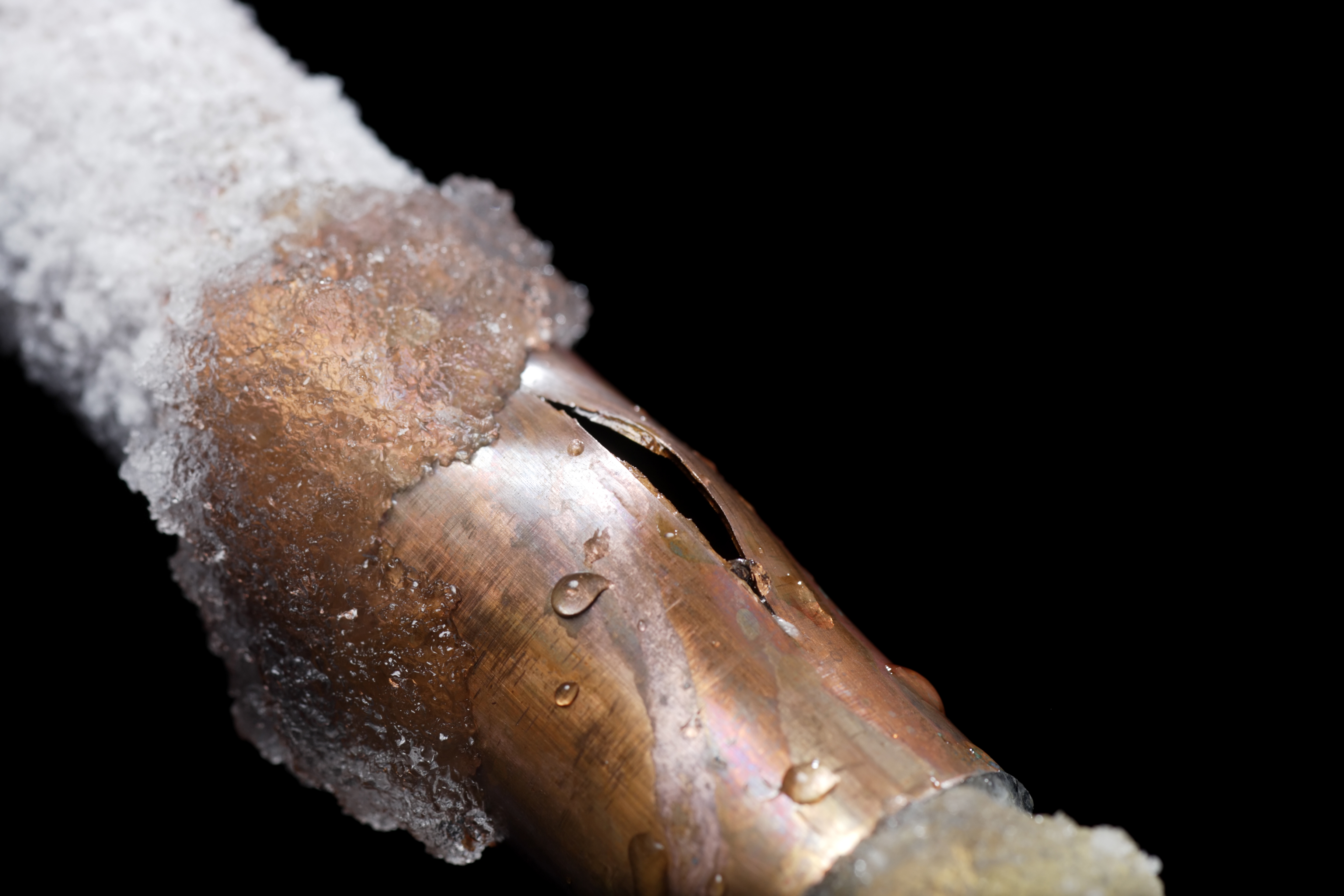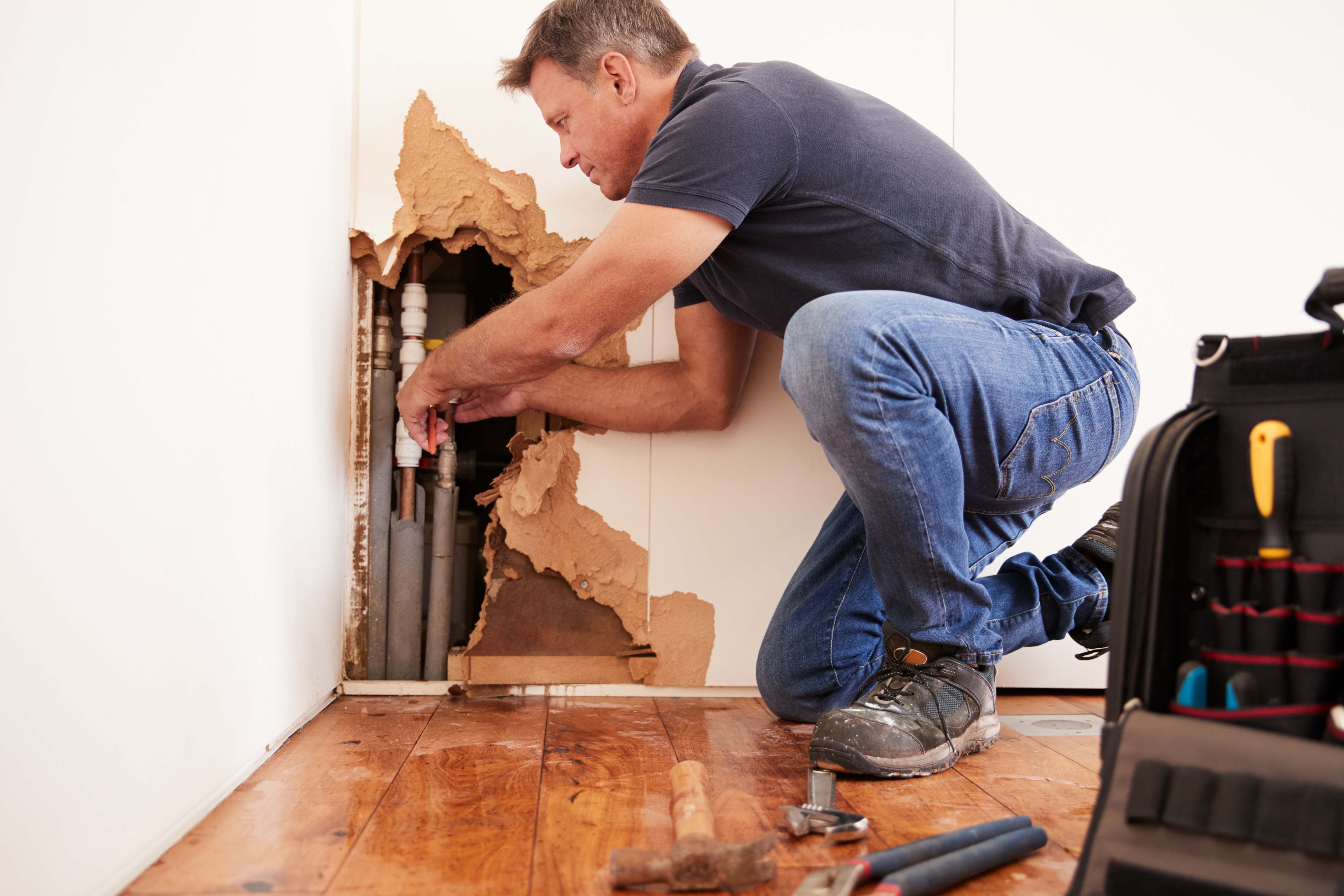
Running water is a luxury most of us take for granted. We don’t pay attention to our plumbing system until something goes wrong, such as burst pipes.
Along with the obvious mess and destruction that comes with burst pipes, there can be serious consequences:
- Flooding. Water can quickly spread throughout your home or business, causing extensive damage. Even if the water’s stopped quickly and the damage is limited to a single room, the cleanup and restoration needed can be significant.
- Property damage. Walls, carpets, furniture, and any other items that get soaked can be ruined. While SERVPRO® provides document restoration services, the longer water sits and causes damage, the more difficult it may be to restore certain items to pre-damaged condition.
- Health risks. The water from a burst pipe can contain bacteria and other contaminants, so it’s important to clean it up as soon as possible. Excessive moisture can lead to mold growth, which can cause health effects.
Knowing how to keep your pipes from bursting is essential for avoiding the destruction that comes with water damage. Still, if you require the assistance of a professional cleanup, restoration, and construction company, give us a call. SERVPRO® is available 24/7 year-round.

Frozen Pipes
One of the most common reasons for water pipes bursting is freezing. When the temperature drops, the water inside your pipes can freeze, expand, and cause the pipes to burst. There are a few steps you can take to prevent this:
- Insulation. Insulating exposed pipes with insulation wraps or foam sleeves is a common and useful way to keep pipes from freezing.
- Seal air leaks. Sealing any air leaks around windows, doors, and ventilation fans can prevent cold air from reaching the pipes.
- Let faucets drip. Running water through pipes helps to prevent them from freezing. Be sure to let faucets drip slightly during cold weather.
Rusted Pipes
Corrosion or rust is another common cause of burst pipes. Over time, the pipes can become worn down and weakened, leading to leaks and ultimately a burst. To prevent this, consider these steps:
- Test water pressure. Check your water pressure occasionally to make sure it’s not too high. This can put too much stress on the pipes.
- Check for corrosion. Check the pipes for signs of corrosion or rust. If you find any, contact a professional for help.
- Install a water softener. Hard water can be corrosive, so installing a water softener can help protect your pipes.
Monitoring Your Water Pipes
It’s important to keep an eye on your water pipes. Check them regularly for any signs of wear and tear. If you notice anything unusual, such as discoloration, leaks, or strange noises, contact a professional immediately. No matter how small the burst, a broken water pipe is an emergency. It can lead to extensive damage and flooding. and pose a health risk if the water is contaminated.
If you have a broken pipe, it’s important to contact a professional as soon as possible to assess the situation and take the necessary steps to fix it.
If you can, shut off your water supply and open any faucets to drain the system. And be sure to switch off an electricity in the area of the burst pipe.

SERVPRO® is Here to Help
At SERVPRO®, we understand how devastating water damage from a burst pipe can be. That’s why we’re available 24/7 to provide cleanup, restoration, and construction services. Whether you require water damage restoration or mold remediation due to excessive moisture, we’re available around the clock.
For more information, review our FAQ page, Glossary, and additional water damage resources.